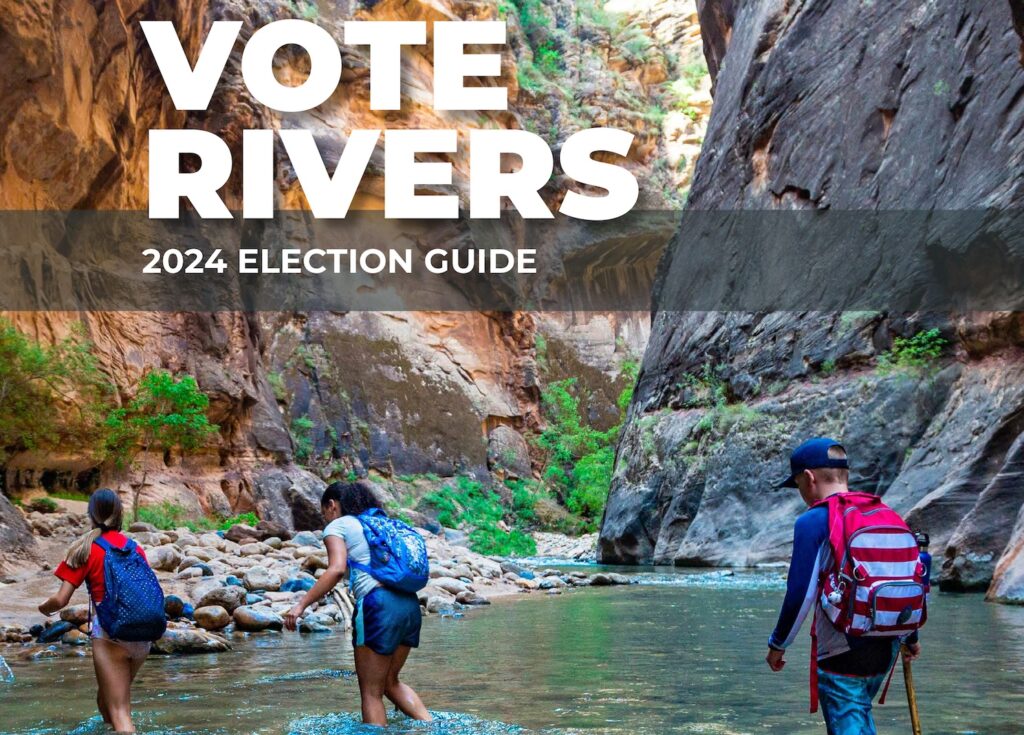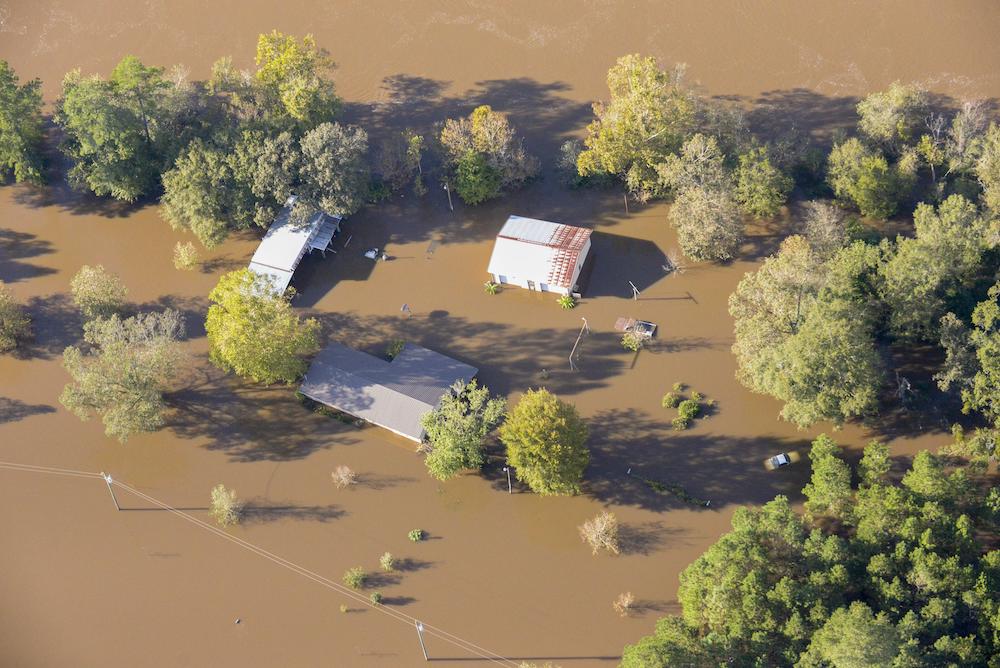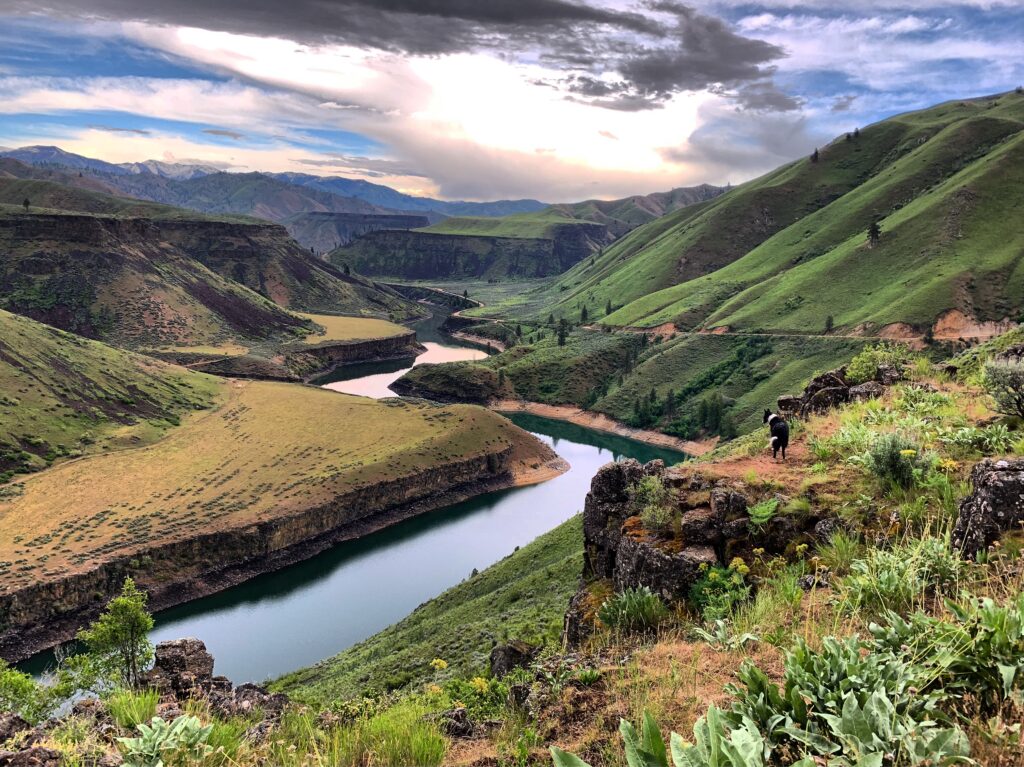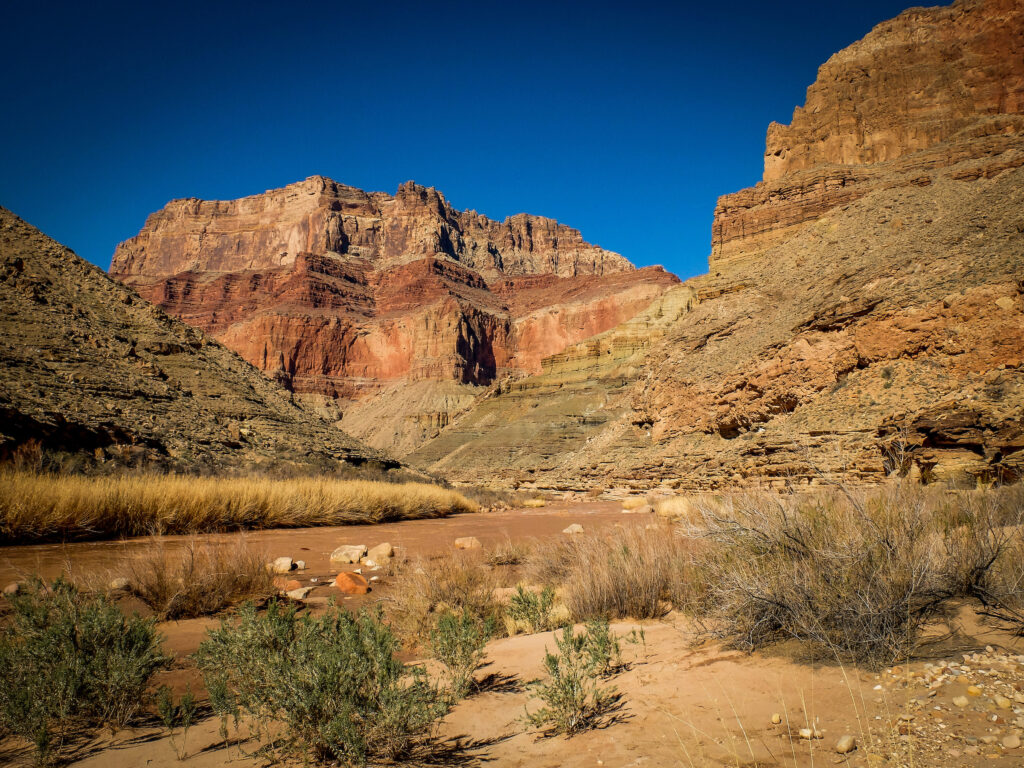5 things to know about Project 2025 and your clean water
In short, it is very bad for rivers

With the election season in full swing, you are likely hearing a lot about something called “Project 2025.” Project 2025, a document produced by the conservative think-tank, the Heritage Foundation with the support of 30 other leading conservative organizations, is a suggested blueprint for the next conservative President. Regardless of your politics, there are a number of recommendations that have a serious impact on the environment and rivers and clean water, specifically. On the positive side, there are multiple suggestions for infrastructure investment, which would likely be a good thing for rivers. Unfortunately, the vast majority of the changes the blueprint proposes would have a decidedly negative impact on rivers.
In addition to broad cuts within the Department of Agriculture, the Forest Service, and the Department of Energy, among other agencies, there are specific changes called out that will have significant repercussions for rivers.
1. Within the Environmental Protection Agency (EPA), it suggests eliminating the
- Office of Environmental Justice and External Civil Rights
- Office of Enforcement and Compliance Assistance
- Office of Public Engagement of Environmental Affairs
The plan also recommends to “review grant programs to ensure that taxpayer funds go to organizations focused on tangible environmental improvements free from political affiliation.” Project 2025 also recommends a “day one executive order” to stop all grants to advocacy groups. And on water specifically, Project 2025 recommends codifying a “navigable water” clause to “respect private property rights.”
What this means for rivers: This means that federal funding currently going to conservation organizations, like American Rivers or those on the ground removing dams to restore rivers, could be held up or eliminated. Weakening federal safeguards for clean water means that it will be up to the states to decide, meaning access to clean water will be depend on the politics of one’s state, not necessarily what is needed for healthy communities or ecosystems. And because rivers don’t stop at state borders, pollution could increase everywhere. Many federal safeguards currently in place to protect rivers and clean water, especially in communities that have traditionally been under-served due to their race, cultural, or income makeup, will no longer be enforced.

Learn about the issues facing rivers and clean water in this election
Dive into our 2024 Election Guide to discover pressing challenges and find opportunities to take action. The more people we can mobilize, the greater our impact will be.
2. Project 2025 suggests lifting the ban on fossil fuel extraction on federal lands, which would put countless miles of rivers and streams at risk.
What this means for rivers: Putting climate change concerns aside for the moment, with any new fossil fuel extraction, the risk of accidents, leaks, and spills goes up considerably. And as we have seen numerous times before, one accident can damage a river and clean water supplies for decades. Further, the headwaters of many rivers in the U.S. are found on national public land. More pollution, means more risk to the literal places where rivers are born, and that will have impacts to everyone who uses it as a water source.
3. Project 2025 calls for the dismantling of the National Oceanic and Atmospheric Administration (NOAA) by moving some responsibilities to other agencies and privatizing other duties. The National Marine Fisheries Service would be streamlined and some duties transferred to the Fish and Wildlife Service, and the “America the Beautiful” and “30×30” programs withdrawn.
What this means for rivers: The NOAA website says it best:
“From daily weather forecasts, severe storm warnings, and climate monitoring to fisheries management, coastal restoration and supporting marine commerce, NOAA’s products and services support economic vitality and affect more than one-third of America’s gross domestic product. NOAA’s dedicated scientists use cutting-edge research and high-tech instrumentation to provide citizens, planners, emergency managers and other decision makers with reliable information they need, when they need it.”
Without a central agency monitoring our climate and weather, and informing the many parts of our government that need that data, we run the risk of being unprepared for the next hurricane, storm, flood, or drought. We already know that climate change impacts every drop of water in our lives. Ignoring this fact threatens our safety and way of life on Earth.

4. With the Department of Energy (DOE), Project 2025 reinforces support for fossil fuels by encouraging more extraction and streamlining public safeguards.
What this means for rivers: We already know that a reliance on fossil fuels will continue to warm our world and intensify floods and droughts. With more drilling and fewer safeguards, threats to rivers and their wildlife and communities will increase.
5. The plan recommends moving the Federal Emergency Management Agency (FEMA) from the Department of Homeland Security (DHS) to the Department of Interior or Department of Transportation, and suggests phasing out programs like the National Flood Insurance Program (NFIP) to private insurance. Disaster preparedness grants would be changed to only go to states – NGOs, Tribal governments, and localities would need to go through State governments for funds.
What this means for rivers: As floods become more frequent and severe, FEMA and the resources it provides become more and more vital. Moving these critical emergency response tools away from an agency that already has the national infrastructure set up to respond when needed would be unnecessarily putting lives at risk. Eliminating federal support programs in favor of state or — even worse — private, control, assures the same vulnerable communities that historically have suffered the most will continue to be under-served, and will have a harder time recovering from the next disaster.
Interested in doing more for rivers? Download our election guide to better understand the threats rivers face in this election. Or join us right now in taking action for clean water by asking Congress to increase federal protections for all streams and wetlands. This is our chance to make a difference!



10 responses to “5 things to know about Project 2025 and your clean water ”
Well, Now I’M scared. And I NEVER scared.
Government spending and overreach is out of control on both sides of the aisle. The 3 by far biggest expenses are entitlements, military, and paying interest on a HUGE amount of debt that does nothing for anyone… Both sides of the aisle are responsible, but no one is ever accountable. As a country we need to get control and be fiscally responsible… It’s not just federal, it’s local, and the problem is our culture… If we truly care, then do something about it at the personal, local, and federal level (vote for accountability on both sides of the aisle)… Everyone just wants the government to regulate us and fix the problem… shouldn’t be the governments job… How about we change the culture and our priorities so it isn’t necessary….
Proposals are ideas, not laws. unnecessary panic is a way to control and gain power. No one wants to ruin our rivers, but some ideas need to be thrown out and some need to put into action.
i am surprised that flat-earthers (and russian collusion bots)bother coming to a nonprofit site to post their hateful and hilariously ignorant fantastical comments.
I know that everyone wants to point fingers at Washington for the mess we are in, but the American people have to take blame for part of this global warming. Get off your butt and vote!!! It is one of the few freedoms we have left in this country. If you leave everything up to Washington, you will not have a planet and that my friends will come so quick. Project 2025 will see to that.
Climate deniers are, at this point, just bad people. Mother Earth will survive even if she needs to throw us off, and she has begun serious retaliation against us. Constant extreme climate disasters are the consequences of our own actions – most American own cars and we drive around, one person in a car, poisoning our environment all day every day
As for jobs in fossil fuels, there are more jobs to be had, and safer jobs, in sustainable energy -and cost? Electricity is FAR FAR cheaper than fossil fuels are on so many levels – and hybrids recharge constantly, driving charges them, so nearly NO fossil fuels are needed and no stress for the vehicle owner – like where is a gas station where is a charging station
We used to be able to drink from our rivers and streams – you all act like it is ok that we can’t today – it is not – we were warned more than 50 years ago to mend our ways or face the consequences we are seeing today. Now is NOT the time to roll back environment remediation measures!
Gail, Trump has already said he will centralize all power in his office – de-centralization of power is what democracies have as protections for democracy – all the power in one office is a dictatorship – no one will be able to protect the environment
Trump has already said he will be a dictator and ‘pause’ the constitution and he has already said he will charge full speed ahead to finish the destruction of the planet
Many different offices of the US government do no good to help the citizens of the USA.
More reliance on US fossil fuels help most people with lower prices, more jobs, and NO harm to rivers. The people who wrote a follow up to this article are full of BS making up stories.
If your comment was meant to calm us, it didn’t help. This is their agenda, and they have learned how to get things done. I do not support that agenda, so I will not support anyone who has anything to do with project 2025.
So, who is Leonard Getler and what group does he represent?
If Project 2025 gives more power to the executive branch; what would that actually do to the unequal branches of government (House and Senate) do to having less powere to act to protect environmental laws crrently on the books which are protecting the environment?
All of these issues must be passed by congress first ,it is not uncommon for a change in administration to make other proposals and a change in staffing,proposals are not law until congress makes it so and the president signs it or vetos it.